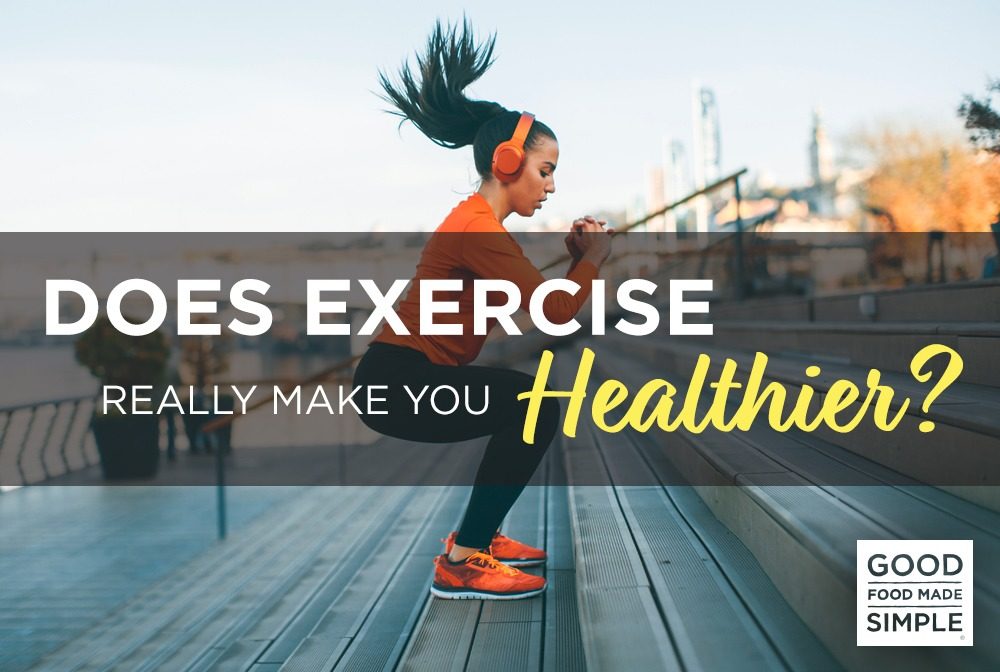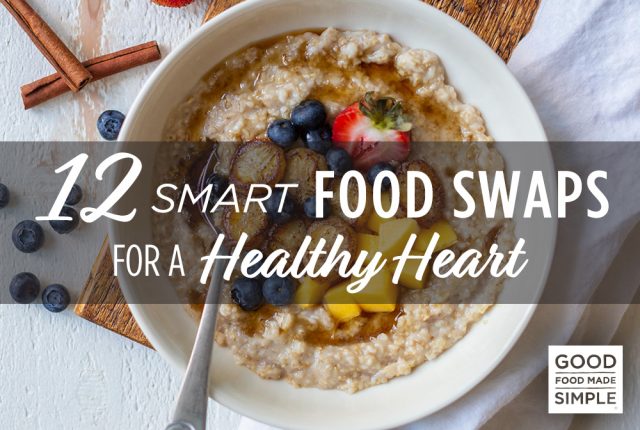
25 Active Date Ideas
While going on dates can certainly be fun, a typical night out with a romantic partner often ends up being focused on eating ...
read more
While it might seem obvious that yes, exercise does correlate with a healthy life, many people work out and never see a certain result: weight loss. While shedding a few pounds is a completely normal motive for exercise, there are numerous, additional benefits going on in the body when you break a sweat that isn’t reflected on the scale.
We’ll examine the various health benefits of exercise below, and address how a certain diet also plays a key role in your health and wellbeing.
Before we jump into exercise health benefits, you might be wondering how much sweat-time is needed to know you’re doing your body some good. The Department of Health and Human Services (HHS) recently released new Physical Activity Guidelines for Americans, which recommends that 18-64 year olds exercise moderately (think: brisk walking or water aerobics) for at least two hours and 30 minutes a week, or exercise vigorously (running, swimming, or cycling) for at least an hour and 15 minutes weekly. When you think about it, this amount of movement isn’t that much; it comes out to either 20 minutes of moderate exercise or 10 minutes of vigorous exercise a day. Other experts say to aim for at least 30 minutes of moderate physical activity daily, but additional exercise is probably needed to meet more aggressive fitness goals. Finally, there’s another camp of experts who focus more on the intensity of the exercise than the length. For example, high-intensity intervals (like short sprints) can get your heart working and fat burning more quickly than if you were to go on a slow, long jog.
Based on the specific health goals you’re trying to meet, it’s best to talk with your doctor and/or a certified fitness trainer.
Here are some incredible benefits of exercise that indeed show how daily movement can promote a healthier you.
Multiple studies throughout the last decade have proved that exercise can lower our risk of heart disease. This is especially true for aerobic exercise, since getting your heart rate pumping through jogging, biking, or swimming can help decrease your heart rate and blood pressure.
How exactly does a heart pumping workout help our heart? When someone is working out, the heart muscle continually contracts, which can help increase blood flow through the arteries and relax our blood vessels. This typically leads to a lowered resting heart rate and lower blood pressure, both of which will decrease the chance of developing cardiovascular disease. Meanwhile, movement and sweat can also block inflammation in the body to avoid arteries hardening around the heart, which causes heart attacks. Lastly, regular exercise can reduce LDL (bad) cholesterol and increase our HDL (good) cholesterol, which means less artery clogging and a lowered risk of heart problems. Researchers say that moderate exercise can reduce LDL cholesterol by up to 10 percent and increase HDL cholesterol levels by between 3 and 6 percent. Heart-warming wins all around!
Who knew that exercise could make you smarter?! Recently, researchers discovered that exercise increases levels of specific molecules in the brain that are critical for cognition. A randomized clinical trial published in 2008 found that people 50 years and older with memory problems who were assigned to exercise programs scored 20 percent higher than their sedentary peers.They even maintained a 10 percent edge one year after the study was over! Meanwhile, studies in rats show that physical exercise boosts levels in the hippocampus, the part of our brain connected to learning and memory.
Many recent studies discuss how exercise is connected to a reduced risk of multiple cancers, such as breast, colon, esophageal, liver, stomach, kidney, leukemia, blood, rectum, bladder, and lung cancer. Yet, while we’ve seen that exercise can lead to a healthier heart, scientists have only found a connection between exercise and a decreased risk of cancer.
There are multiple, solid theories for the connection; physical activity helps lower cancer risk by helping to control weight and reduce insulin levels. Both of these factors are connected, too — people who are overweight or obese tend to have higher circulating levels of insulin, which has been linked to a handful of cancers due to its role in creating new tumors or making current tumors grow.
Lastly, multiple studies show that working out could also reduce the risk of cancer by boosting the body’s immune system.
As mentioned in the beginning of this article, the relationship between exercise and weight loss is a tricky one. Contrary to popular belief, working out at the gym every day will not necessarily lead to weight loss, since people can easily make up for the calories lost by spending too much time in front of the fridge. In other words, exercise alone will unlikely lead to the instant results most people want. (If you’re really focused on losing a healthy amount of weight, caloric intake over burning calories through exercise is way more effective). Interestingly, some studies reveal that exercising could help us crave healthier and unprocessed foods versus the ones processed with salts and loaded with sugars. All in all, a regular exercise routine coupled with healthy eating could help you see the results on the scale you’re looking for.

25 Active Date Ideas
While going on dates can certainly be fun, a typical night out with a romantic partner often ends up being focused on eating ...
read more
12 Smart Food Swaps For A Healthy Heart
February is American Heart Month, and one of the best ways to maintain good heart health is to watch what you eat. Instead of...
read more
Starting the New Year With the ‘Right’ Mindset
With the holiday finally over and the new year upon us, I’d be shocked if you haven’t thought about New Year's Resoluti...
read more